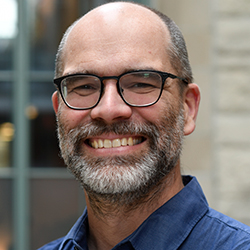Randall Berry Discusses COVID-19 Testing Models at NSF “Call to Arms” Workshop
The workshop aimed to spark research on how to model, analyze, and predict the spread of COVID-19
Randall Berry, chair and John A. Dever Professor of Electrical and Computer Engineering, presented a talk on resource-constrained testing in the context of COVID-19 during the National Science Foundation’s (NSF) Networking Technology and Systems (NeTS) program’s first Call to Arms Workshop, held April 13 over Zoom.
The workshop focused on sparking research across the NeTS community on how to effectively model, analyze, and mitigate the spread of COVID-19. The workshop included three panels: 1) Modeling and prediction of virus spread, 2) resource-constrained testing in order to halt the spread of the virus, and 3) adaptive interventions from limited data.
Berry’s talk focused on testing and learning epidemic models, particularly how different testing objectives (testing infected individuals versus uninfected individuals) can require different testing strategies, and the problems that can happen in resource-constrained testing scenarios.
“These [testing] objectives are all coexisting at different times, and different ones of them are going to have more importance than others,” Berry said during his presentation. “If tests are constrained and the epidemic is at a stage where it is now, then trying to get people treatment, which seems to be the main objective, is probably the right one. If the epidemic starts to moderate, then maybe the objective changes and you begin to think differently about how you deploy tests.”
View a recording of the workshop.
